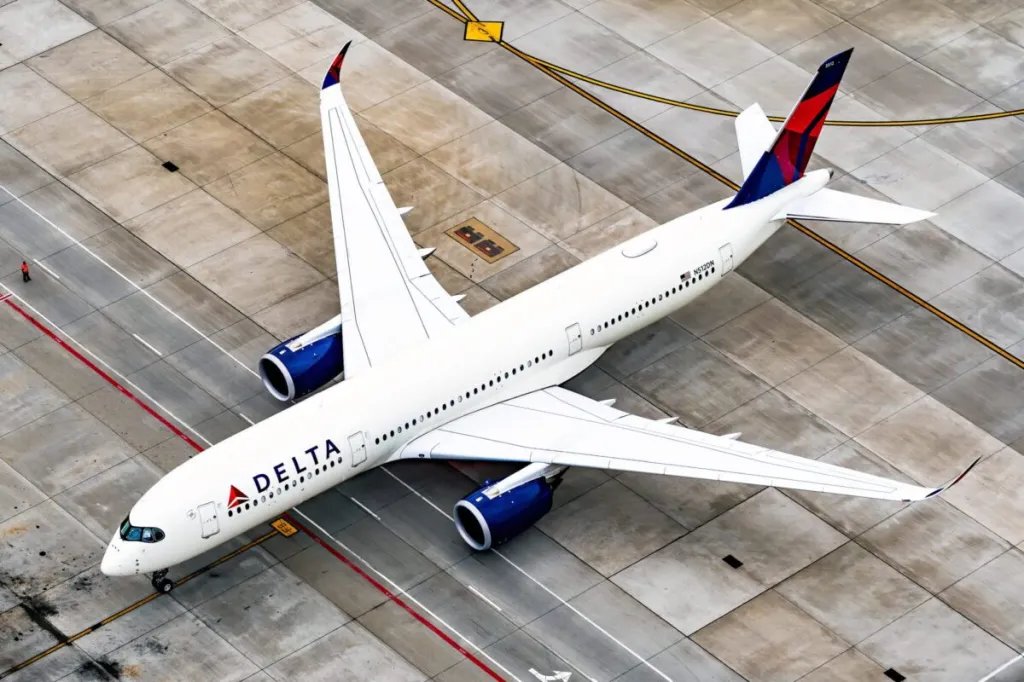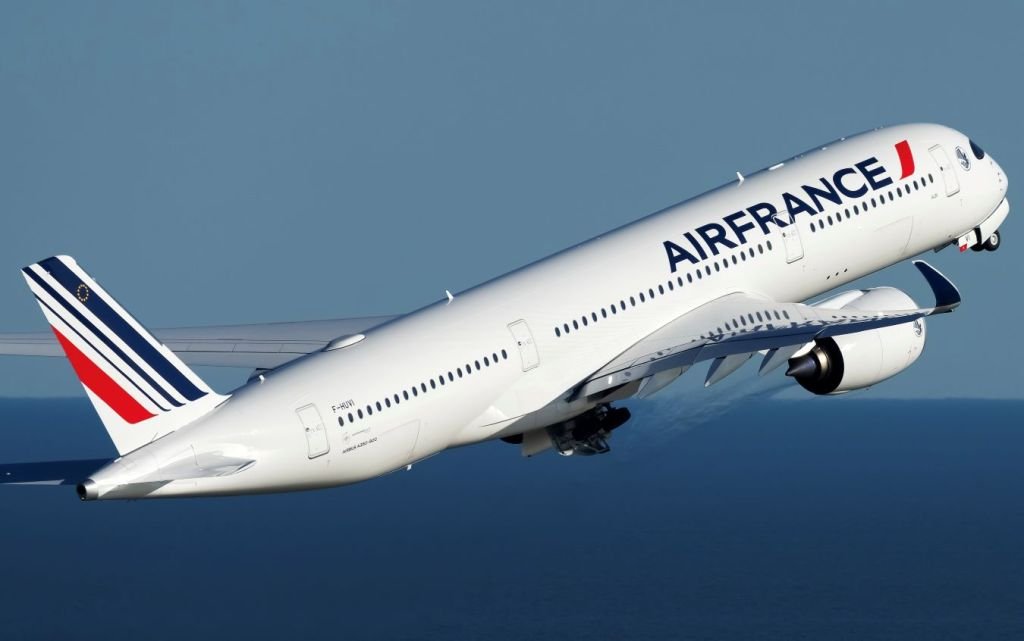Travel Market Insights
How a Property’s DNA Impacts GDS Bookings

This sponsored content was created in collaboration with a Skift partner.
Global hotel performance was on a strong upward trajectory throughout 2024, with the sector averaging 7% growth compared to 2023. But momentum slowed in early 2025, and by May, the Skift Travel Health Index for hotels was down 2 percentage points from the previous year, reflecting the first softening in overall performance since 2020.
With continued volatility and perpetual uncertainty, every revenue stream counts. In the most recent Data Snap, Skift and Onyx CenterSource explored why the global distribution system (GDS) agency model remains one of hospitality’s most durable revenue engines. According to OnyxInsights data, $2.1 billion was paid out in commissions through these channels in 2024. The GDS commission share, as defined throughout this article, reflects how much of a hotel’s overall business across both direct and indirect channels is tied to agency-model transactions made through the GDS.
Part 2 of this analysis explores even more factors that influence this critical input for hotel bookings: whether a hotel is branded or independent, where it’s located, and when it was built. While it might not be surprising that each of these attributes plays a role in a hotel’s revenue potential, the ways in which they all contribute show why it’s important for operators and travel management companies (TMCs) to pay close attention to underlying commission dynamics.
Why Branded Hotels Lead in GDS Commission Share
Flying a major hotel chain’s flag appears to pay dividends when it comes to maximizing share of the billions in GDS commissions at stake.
Branded hotels, e.g., properties managed or franchised by global hotel chains, consistently outperform independent hotels, which are individually operated without affiliation to major brands. In North America, branded hotels achieve an average commission share of 5.6%, versus just 2.6% for independents. Significant gaps appear across Europe (4.5% vs. 2.9%) and Asia-Pacific (4.8% vs. 2.7%) as well.
Why is this the case? Global chains leverage extensive global distribution networks, loyalty programs, and marketing resources, which substantially boost commissionable bookings. Conversely, independent properties often rely on niche market positioning, unique local experiences, or specialized partnerships to compete effectively.
Agencies often prioritize properties affiliated with broader programs to ensure predictable and higher returns. Therefore, if hotels would like to enhance their attractiveness to agencies, independent hotels should strategically seek participation in global or loyalty programs to leverage the consistent demand travel management companies generate through the GDS channel.
Property Location’s Influence on Commission Shares
Affiliation with a major brand isn’t the only clustering effect that influences GDS commissions. Hotels located in proximity to competitive properties in urban, airport, and suburban markets in the U.S. also see significantly higher GDS commission shares — 5.9%, 5.9%, and 4.8% respectively — in comparison to highway and small-town locations (3.5%) and resorts (2.7%).
A map of the San Diego, Calif. metropolitan area plots these different submarket types, displaying how these broader statistics apply in context.
Urban and airport hotels’ advantage stems from high business travel frequency, transient stays, and strategic corporate agreements and rates, all of which have high visibility in the GDS.
Agencies prioritize urban and airport properties in their portfolios to benefit from consistent, higher-volume bookings, so hotels outside urban and airport environments must strategically position their offerings, emphasizing specialized events, leisure attractions, or unique local experiences to increase commissionable demand.
Hotel Openings and Their Impact on Commission Growth
Since the golden rule of all real estate development is “location, location, location,” and “branded or independent” is an ever-present question in hotel investment, these two factors contributing to GDS commission share are deliberate and strategic. A slightly more random, but equally impactful, influence is when their property was built.
Historical data correlates the growing dominance of branded hotels with increases in overall commission shares across the industry. Hotels opened between 2010 and 2020 commanded an impressive 7.4% GDS agency commission share, far exceeding earlier periods. Notably, this period aligns with substantial expansion by major mergers and franchise growth.
The correlation between an industry-wide shift to branded hotels in the 1990s and subsequently higher GDS commission share starting in the 2000s is likely due in part to the adoption of centralized distribution strategies among large hotel companies, which give hotels better visibility and positioning in the GDS. In addition, this trend likely reflects evolving traveler preferences toward consistency, brand trust, and rewarding loyalty programs, particularly appealing to business and frequent leisure travelers. As a result, agencies frequently guide high-volume bookings toward branded properties known for reliability and quality assurance.
Independent hotels must recognize this competitive landscape and proactively invest in building brand presence, reputation management, and enhanced partnership frameworks to compete effectively.
Strategic Relevance in GDS Channels: Actionable Takeaways for Hotels and Agencies
Understanding underlying commission dynamics provides hotels and agencies with powerful strategic leverage, enabling optimized decision-making, enhanced competitive positioning, and improved profitability in an increasingly complex global hospitality landscape.
Hotels should evaluate their operational and strategic positioning in the following ways:
- Enhancing loyalty programs, partnerships, and affiliations within branded networks to amplify distribution capabilities.
- Strategically positioning offerings based on geographic strengths and unique market appeal.
- Prioritizing modernization and differentiation for higher ADR and commission appeal.
Meanwhile, agencies can sharpen their strategic focus by:
- Prioritizing branded, centrally located, and newer hotels, which consistently deliver on reliability and client satisfaction and can deliver more consistent, higher commissions.
- Developing specialized marketing campaigns that target high-value traveler segments.
- Leveraging historical and persona-driven insights to optimize hotel partnerships and negotiate favorable commission structures.
“The Data Snap” is a recurring article series that paints a clearer picture of the dynamic hotel booking landscape, empowering hotels and agencies to make data-driven decisions that help them build productive partner relationships and drive more revenue.
OnyxInsights offers a comprehensive view of the industry landscape, enabling hotels and TMCs to make well-informed decisions and better serve their clients and partners. Onyx CenterSource processes over 100 million transactions annually on behalf of 200,000 agencies and 150,000 hotels globally, representing nearly $2.1 billion in hotel commission payments. Visit onyxcentersource.com to learn more.
This content was created collaboratively by Onyx CenterSource and Skift’s branded content studio, SkiftX.
Travel Market Insights
Delta Says It Will Not Use AI to Target Customers

Key Points
- Delta Air Lines clarified it does not use AI to set individualized airfares based on personal data, following criticism from lawmakers.
- The airline uses AI, via a partnership with Fetcherr, to assist in dynamic pricing for a growing portion of its domestic flights, but claims all fares are determined by market dynamics and are publicly available.
- Lawmakers and officials have expressed concerns about potential predatory or ‘surveillance’ pricing, prompting Delta to stress its commitment to fair, competitive pricing and data privacy.
Summary
Delta Air Lines has publicly stated that it does not use AI to set individualized prices based on personal customer data, responding to recent criticism and inquiries from U.S. lawmakers. The airline acknowledged using AI technology, through a partnership with Fetcherr, to assist analysts in setting fares for a portion of its domestic flights, with plans to expand this use. However, Delta emphasized that fares are determined by market competition, not personal data, and all prices are transparently published, aiming to dispel concerns about privacy and potential predatory pricing.
Travel Market Insights
U.S. Dollar Slide Hurts Accor, Minor, and Meliá

Some of the world’s largest hotel companies saw their earnings dented by currency swings in the first half of 2025, as euro and baht-reporting groups absorbed losses while U.S.-based chains appeared largely insulated from the volatility.
Accor, Meliá Hotels, and Minor International all reported currency-related losses that offset solid operational performance. Meanwhile, U.S.-based Hilton and Wyndham, which report in dollars, did not mention foreign exchange impacts in their earnings calls and appeared shielded from the same pressures.
The U.S. dollar index dropped 10.8% in the first half of 2025 following the Trump administration’s April tariffs and public clashes with the Federal Reserve. The resulting investor pullback caused the dollar to weaken sharply against the euro, baht, and other currencies.
Accor: Currency Among Its Biggest Headwinds
Paris-based Accor repo
Travel Market Insights
Winners, Losers, and Lots of Premium Seats: Europe’s Airline Scorecard

Skift Take: Premium cabins still drive profits, but it's the low-cost threat that keeps Europe's legacy carriers up at night.
-

 Brand Stories2 weeks ago
Brand Stories2 weeks agoBloom Hotels: A Modern Vision of Hospitality Redefining Travel
-

 Brand Stories1 week ago
Brand Stories1 week agoCheQin.ai sets a new standard for hotel booking with its AI capabilities: empowering travellers to bargain, choose the best, and book with clarity.
-

 Destinations & Things To Do2 weeks ago
Destinations & Things To Do2 weeks agoUntouched Destinations: Stunning Hidden Gems You Must Visit
-

 Destinations & Things To Do1 week ago
Destinations & Things To Do1 week agoThis Hidden Beach in India Glows at Night-But Only in One Secret Season
-

 AI in Travel2 weeks ago
AI in Travel2 weeks agoAI Travel Revolution: Must-Have Guide to the Best Experience
-

 Brand Stories4 weeks ago
Brand Stories4 weeks agoVoice AI Startup ElevenLabs Plans to Add Hubs Around the World
-

 Brand Stories3 weeks ago
Brand Stories3 weeks agoHow Elon Musk’s rogue Grok chatbot became a cautionary AI tale
-

 Asia Travel Pulse4 weeks ago
Asia Travel Pulse4 weeks agoLooking For Adventure In Asia? Here Are 7 Epic Destinations You Need To Experience At Least Once – Zee News
-

 AI in Travel4 weeks ago
AI in Travel4 weeks ago‘Will AI take my job?’ A trip to a Beijing fortune-telling bar to see what lies ahead | China
-

 Brand Stories4 weeks ago
Brand Stories4 weeks agoChatGPT — the last of the great romantics













You must be logged in to post a comment Login